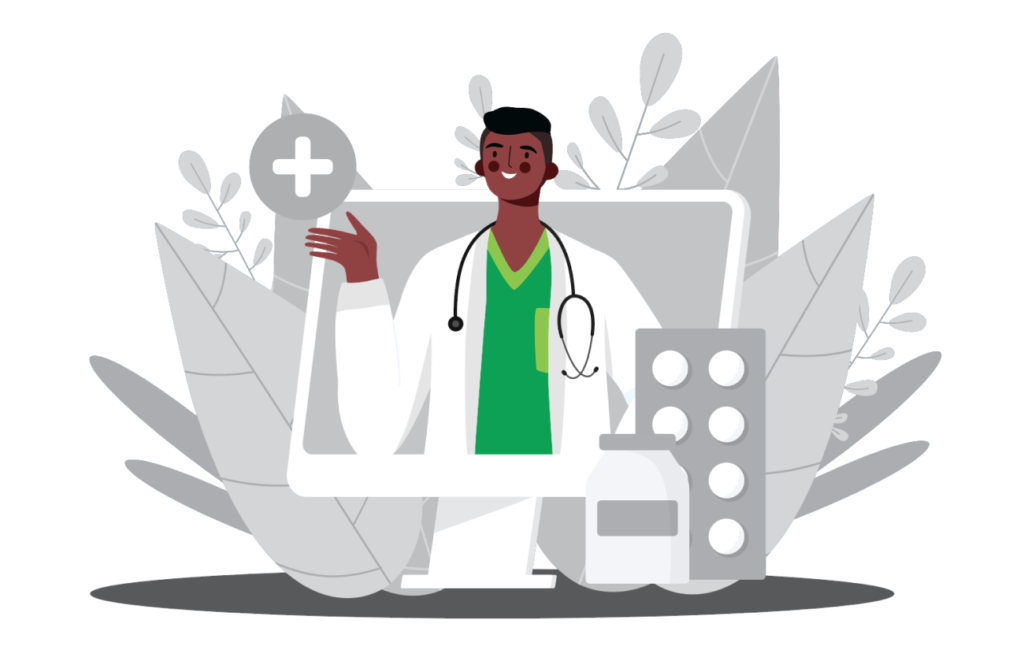What Isaac Newton could teach us about COVID-19

Historians note that famed physicist, Sir Isaac Newton, was forced to work from home in his early 20’s when the bubonic plague swept through London in 1665.
A college student at the time, Newton said it was the most productive period of his life, calling it the “year of wonder,” in which he discovered the theories of gravity and motion, and even penned his early thoughts on calculus.
They say challenging times are the perfect breeding ground for opportunity and innovation. While the last nine months have been incredibly difficult, we’ve also learned a lot.
Like Newton, many of us have realized we don’t need a traditional office to do our jobs, and despite the frustrations often associated with working from home, it’s nice spending less time commuting and more time with the people we love.
We’ve also learned we don’t always need to rearrange our day or hop in the car to be seen by a doctor.
As cases of COVID-19 escalated, health officials urged the use of telemedicine to prevent the spread of the virus and keep emergency rooms clear for those with critical needs. The technology, which was slow to adopt prior to the pandemic, exploded overnight, with CDPHP seeing a 3,000 percent increase in telehealth claims between March and June of this year.

If necessity is the mother of invention, no truer words could be said of telemedicine.
Today, most physicians agree the pandemic provided an important catalyst for people to become familiar with and begin using telemedicine, but warn the technology should supplement, not replace, in-person care.
Like Newton with his third law of motion, we’re also learning that every action has an equal and opposite reaction.
Many patients afraid of catching the virus have either delayed care or avoided returning to the doctor altogether. Since March, health care providers have seen a sharp decrease in patients seeking preventive care services, with some providers reporting a 30 percent drop in checkups, vaccinations, and cancer screenings. At the same time, the Centers for Disease Control and Prevention reported a significant increase in the number of patients experiencing symptoms of anxiety, depression, and other mental health disorders.
With COVID-19 cases on the rise once again, health care professionals are warning the public that a decision to delay care could be much more dangerous than catching the virus itself.
Over the last nine months, nearly 300,000 Americans have died of COVID-19. Still, that number pales in comparison to the number of people who died last year of cardiovascular disease (655,000) and cancer (600,000).
The last nine months have taught us a great deal about the American health care system. I’m often the first to criticize its shortcomings, but let’s face it, we’re pretty lucky to live in a country where we have access to the best doctors, medicine, and technology available.
Newton’s people weren’t so lucky in the 17th Century, with an estimated 50 million succumbing to bubonic plague – as much as 60 percent of the European population.
As we once again hunker down and do our best to contain a virus that has caused so much pain for so many, let’s take a moment to be thankful for science and modern medicine. Embrace innovation, be grateful for life-changing technology like telemedicine, and for the love of God, get your flu shot!
 The Daily Dose
The Daily Dose
Deb Balliet
Dear Dr. Bennett, Thanks for sharing this insightful and helpful commentary. I have follwoed your career since our time at NE Health. We are fortunate to have your leadership, insight and wisdom. Thank you for all you do. Merry Christmas to you, Deborah and your wonderful colleagues at CDPHP. We appreciate you all staying strong and determined – and using your porfessional expertise to combat COVID and help keep us well. Sincerely, Deb Balliet
John Bennett
Hi, Deb – Thanks so much for the kind words. We will be here for our members and our community during and long after this crisis is over. Best to you and yours in the New Year.
Richard Pinder
At this particulr time of year, great message message for us all. Thank you Dr.Bennett.
John Bennett
Hi, Richard – Thank you for taking the time to reach out. Best wishes for a healthy New Year.
Ken Larsen
As a CDPHP subscriber, I would agree that I have access to the best doctors, medicine, and technology available. Unfortunately, that is not the case for many people in this country. We must ensure that all people have access to some basic level of care. Until we do, healthcare in this country is an instrument of inequality.
John Bennett
You raise some excellent points. We support universal access to health care and work hard to ensure our members feel healthy, happy, safe, and secure.
Tim
I’m 63 with a fib. When can I expect a vaccine shot?
Thanks.
Tim
John Bennett
Hi, Tim – We are advising members to connect with their doctors regarding the COVID-19 vaccine and its distribution. Additional resources can be found on our website here: http://www.cdphp.com/coronavirus.
Lenora German
Dr Bennet – James German, my husband, was not only your heart disease patient years ago, but CDPHP has been our insurance carrier for over 3 decades now. We are both very proud to have experienced first hand your excellence as James’s cardiologist, and of the work as CEO of CDPHP. We are both extremely proud of CDPHP being our insurance carrier. Thank you for the many years of superb, over the top excellence in always putting the members/patients first!
John Bennett
Hi, Lenora! Yes, I remember James well! I am proud to have been able to serve you and your family in different capacities over the years. All my best to you and James! Thank you so much for reaching out.